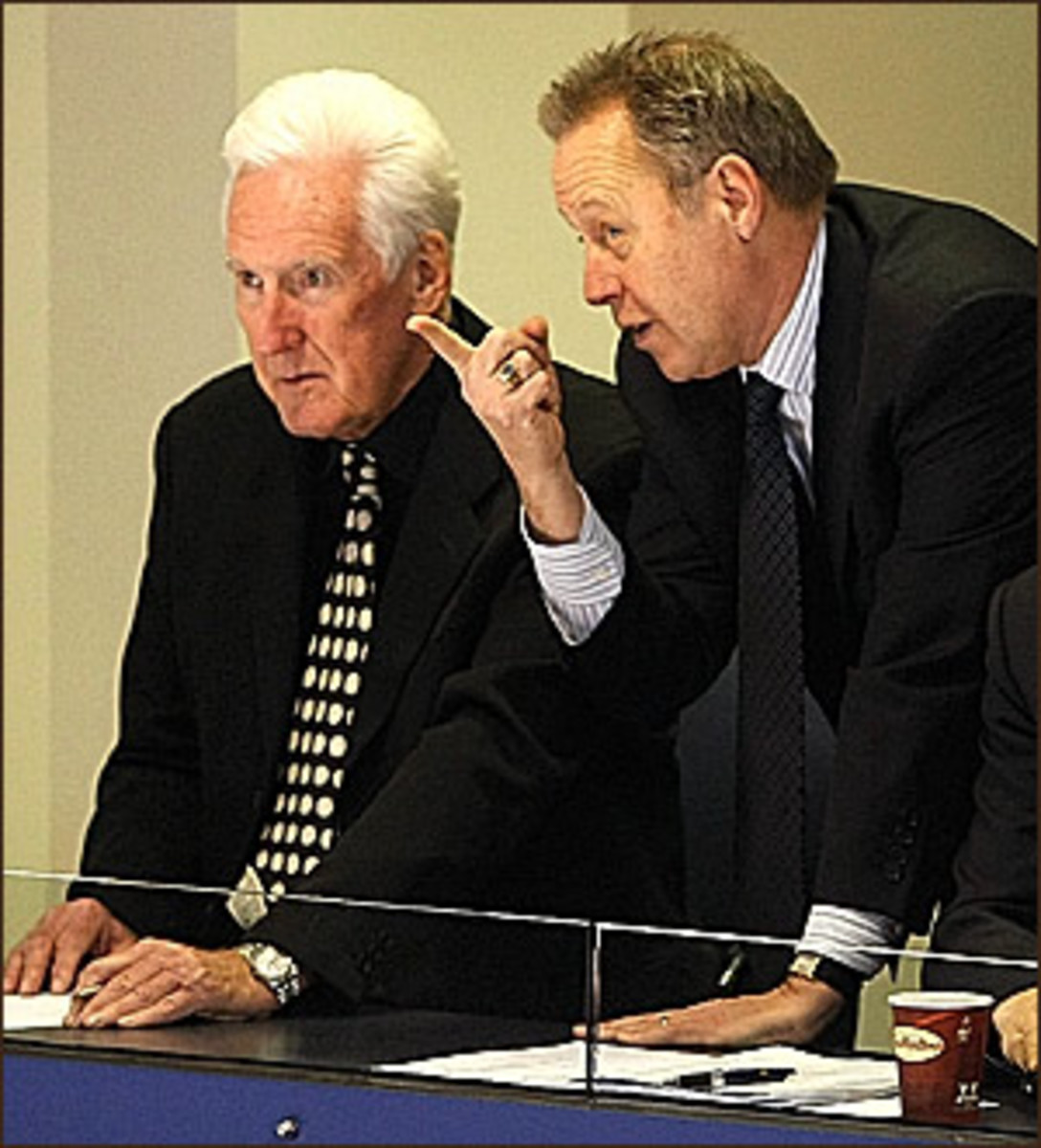Deadline blues


With the trade deadline upon us, most of the talk has surrounded the ever-growing specter of the "No Trade" or "No Movement" clause. Well over 100 players have such provisions in their current contracts, and that is rendering the usual rumor mill more limited than usual.
Certainly that is the case in Toronto where five players have such exemptions and all have reportedly opted to exercise their right and remain with the Maple Leafs. The organization brought back Cliff Fletcher -- his second go-around in Leafland -- to replace the terminated GM John Ferguson. The thought was that Fletcher, a well-respected hockey man who is now in his seventies, might be able to cajole some of those veterans into waiving their right to stay so he could deal them for much-needed players, prospects and picks.
It hasn't gone that way. The plan -- a very loosely applied term when talking about the Maple Leafs' business -- unraveled with the saga involving captain Mats Sundin. The classy superstar stated that he didn't believe in rental players and that the October to June journey in securing a Stanley Cup is what drives him. In other words, he said no as politely as one can. And you certainly can't argue with the purity of his sentiment; nor should anyone blame Sundin for balking at the notion of being part of a repatriation package.
For if not the right to exercise said clause, what value does such a provision provide? Bartering isn't an option under the current Collective Bargaining Agreement, as it was in years gone by when a cash settlement, contract extension, or the now extinct option year invocation were vehicles that gave no-trade clauses tangible value. As teams try to separate themselves from one another in the cap era, perks such as NTCs provide differentiation. They give a player lifestyle leverage more than anything, as he has a say in where, when and if at all he'll ship out of town.
If you think about the current CBA and the supposed partnership between the players and ownership, the proliferation of no-movement amendments to contracts makes sense. It gives elite players a tacit voice in the team-building process. Not that they'll one day sit at the draft table or participate in a team's budget talks, but they have moved on from being chattel to having actual choices. In Toronto, for instance, they formed a bloc with Sundin, Tomas Kaberle, Bryan McCabe, Darcy Tucker and Pavel Kubina all passing on the Leafs' scheme to make them deadline parcels. The message is that they collectively have the right to stay and, in so doing, effectively voted down management's Plan A to fix the franchise by going in a different direction.
I'm not sure what Plan B is, but whatever unfolds, gone is the assumption that no matter what the written word, even players with stay-put status are malleable assets. The entire affair has altered Tuesday's trade deadline specifically and maybe the whole notion in general. Call it the No-Trade Trade Deadline from now on.
But you better call the players first.
Sundin and his Leafs will miss the playoffs for the third straight season, so the spoiler roll it is. This week, the Leafs take on their provincial rival Senators -- who are out of first place in the Eastern Conference for the first time this season, supplanted by the Devils, who take over top spot for the first time since 2001. From there, the Leafs tour the Southeast Division where they take on the Panthers, Lightning and Capitals, thus making lots of Leafs fans, if only temporarily, in Carolina and Atlanta. I assume the Hurricanes and Thrashers are thrilled that Sundin and company stuck around.
